Research in the spotlight is a video podcast for scientists and passionate science people having as protagonists the principal investigators (PI) of the
Collaborative Research Projects funded in 2018 & 2019 calls under the
Romanian Research Programme - EEA & Norway Grants.
This
video podcast is designed by the Executive Agency for Higher Education,
Research, Development, and Innovation Funding (UEFISCDI), as Programme
Operator of the Research Programme funded under the EEA & Norway
Grants.
The first series of
the video podcast was launched in December 2021 and included 11
episodes. The discussions within the PI's of the EEA Grants were focused
on the main challenge that the projects addresses, if research is able
to find solutions, in the next decades, for different problem that the
current society is facing and how the partnership between researchers
from different countries is working for an green, competitive and
inclusive Europe.
The second series of the video podcast was launched on 22nd of February 2023
presenting 13 new and disruptive interviews within the PI's of the
Collaborative Research Projects funded under the Norway Grants.
We conclude the second series of the Research in the Spotlight with an
episode presenting
a geoscientific solution for increasing the production of renewable
energy (geothermal) in the northwestern part of Romania.
When
using fossil fuels, electrical and thermal energy production generates a
vast amount of CO2. A great alternative would be to invest in renewable
energy, like the geothermal waters located in the northwestern part of
Romania. Dr. Ionelia Panea from University of Bucharest and her team of
brilliant researchers realized that the Baia Mare area was the least
explored. So they partnered up with the University of Oslo to provide
and analyze extensive geo-data.
Keep
watching this episode to learn how both universities plan on using the
collected data to increase the chances of a more sustainable future and
start a long-lasting partnership.
The detection of pesticide pollutants with improved selectivity and analytical performance can increase the quality of life.
With
the support of its Norwegian and Romanian partners, Dr. Farcău and his
research team aims to develop a sensing platform. It will be based on a
plasmonic chip containing a metal nanostructured surface. This solution
could detect pesticide pollutants by simultaneous optical spectroscopy
and electrochemistry.
Keep watching
the twelfth episode Research
in the Spotlight to discover how their SERS-electrochemical sensor can
reduce the sources of pollution in the industrial and agricultural
fields .
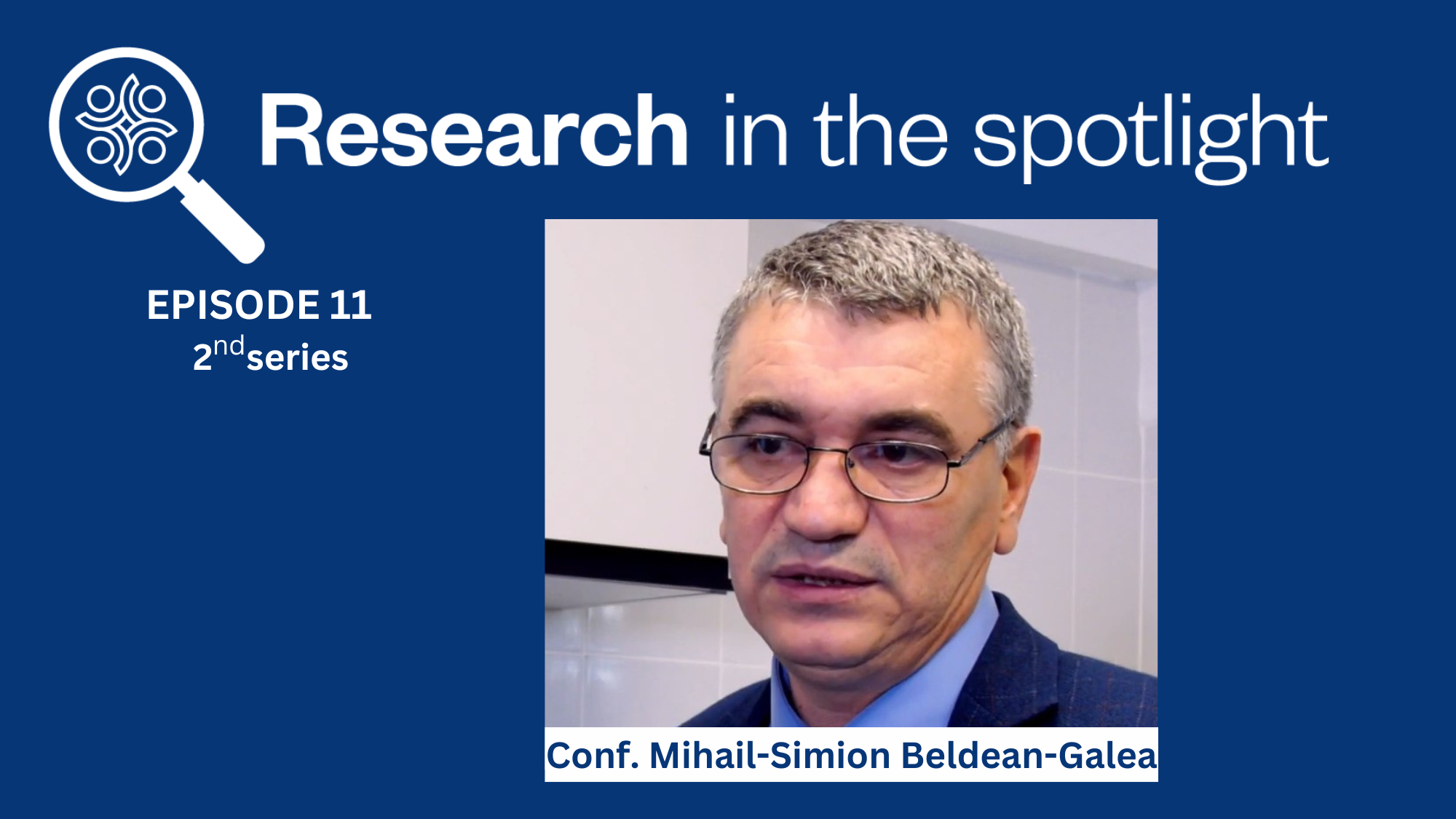
Roma communities in the Transylvanian rural areas face daily sanitary challenges.
The
uncontrolled water and food resources bring several health risks and
deepen the discrepancy between Roma and non-Roma communities.
Dr.
Beldean and his research team together with Norwegian partners aim to
improve the health status of the population and, thus, the quality of
life.
Watch the
eleventh episode
to learn how real data about the quality of water and food resources
can drive a better support tool for public decision-making.
Patients
that suffer from cancer are often exposed to an increased level of
radiation during their treatment. Moreover, the medical system struggle
with the high costs for early cancer detection procedures and overall
treatment. Prof. Gruionu and his team of researchers are developing an
advanced prototype of a medical robotic platform to Improve cancer
Diagnostics. IDEAR, as they call it, will perform both diagnostic and
treatment during the same procedure using an advanced smart robotic
system and customized instruments with dual electromagnetic-optical
tracking.
Watch the
tenth episode
to discover how the use of AI and Medical Robotics can create
accessible and non-invasive endoscopic procedures that will increase the
success rate of cancer interventions.
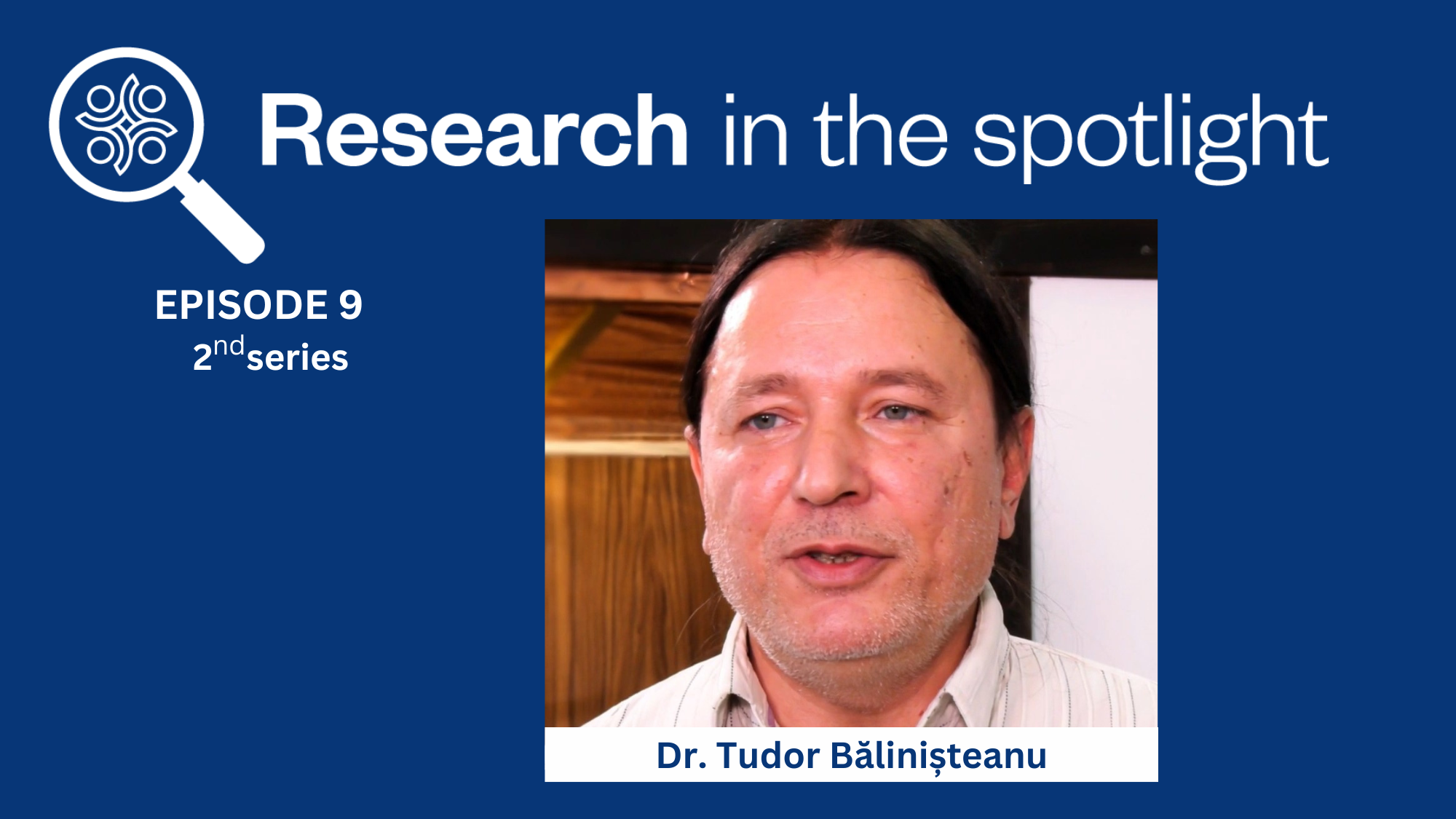
It’s scientifically proven that poetry and visual arts offer aesthetic pleasure through their rhythm and symmetry.
Dr.
Bălinișteanu and his research team focus on the biological universals
of the aesthetic experience. Their purpose is to detect the
neurophysiological mechanisms underpinning aesthetic pleasure. The
project is the cornerstone of the first neuroaesthetics laboratory in
Romania, while also leading efforts to integrate more women in science
research.
Keep watching the
night episode
of Research in the Spotlight and learn how the Collaborative Research
Project #PoeticA explores the universals of human expression in art.
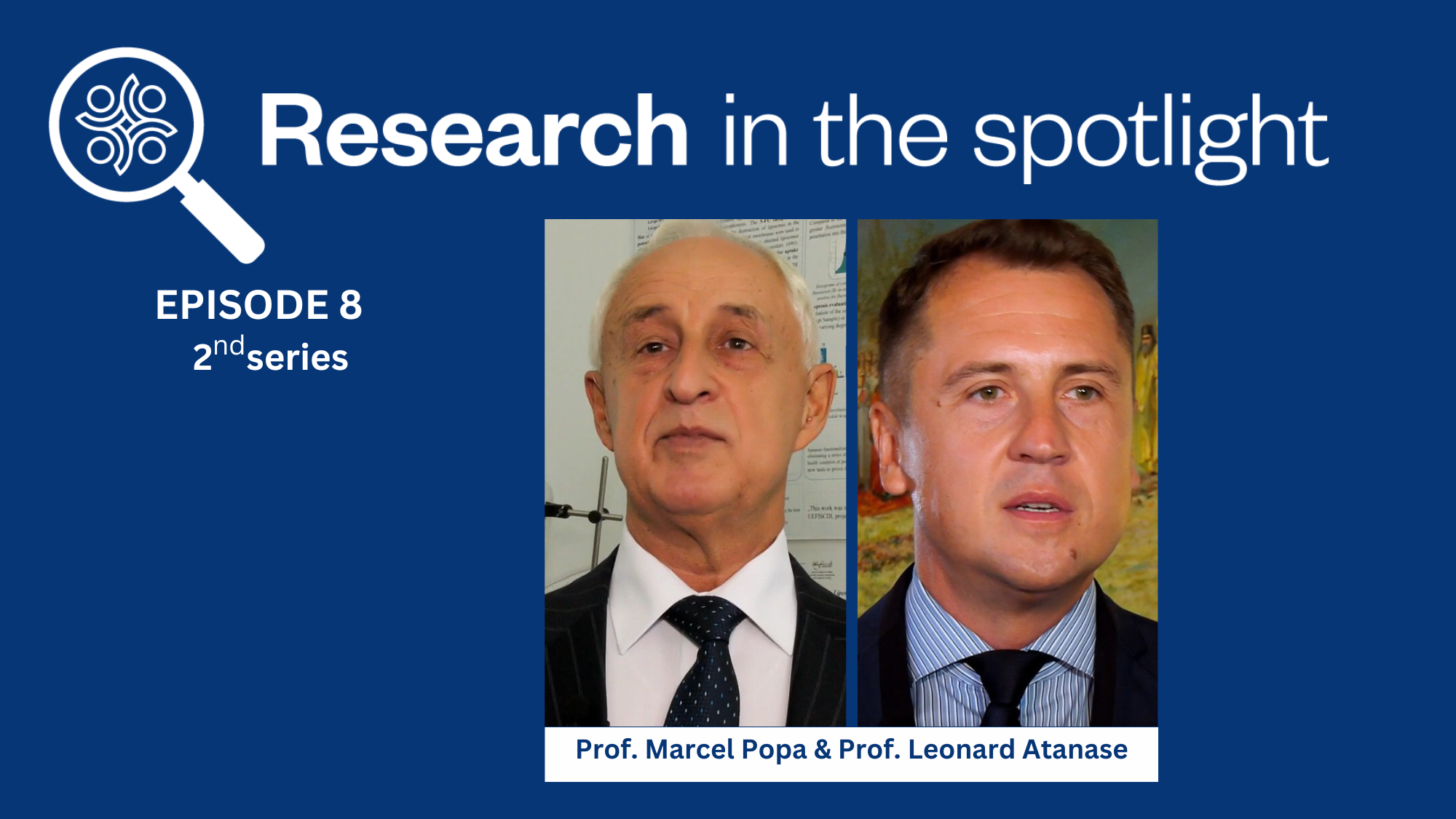
It’s not often you discover that hearing deficiencies can be cured through medication.
Dr.
Popa’s research team goal is to develop a technology capable of
producing drug-delivery systems for treating hearing deficiency. These
will include two new types of drug-loaded peptide-functionalized
magnetic nanocarriers. They will be capable of dual active targeting:
the first, under an external magnetic field, and the second, in the
inner ear-specific cells, due to the peptide ligands.
The
eighth episode of the video podcast show how this research can facilitate public access to proper medication at lower costs.
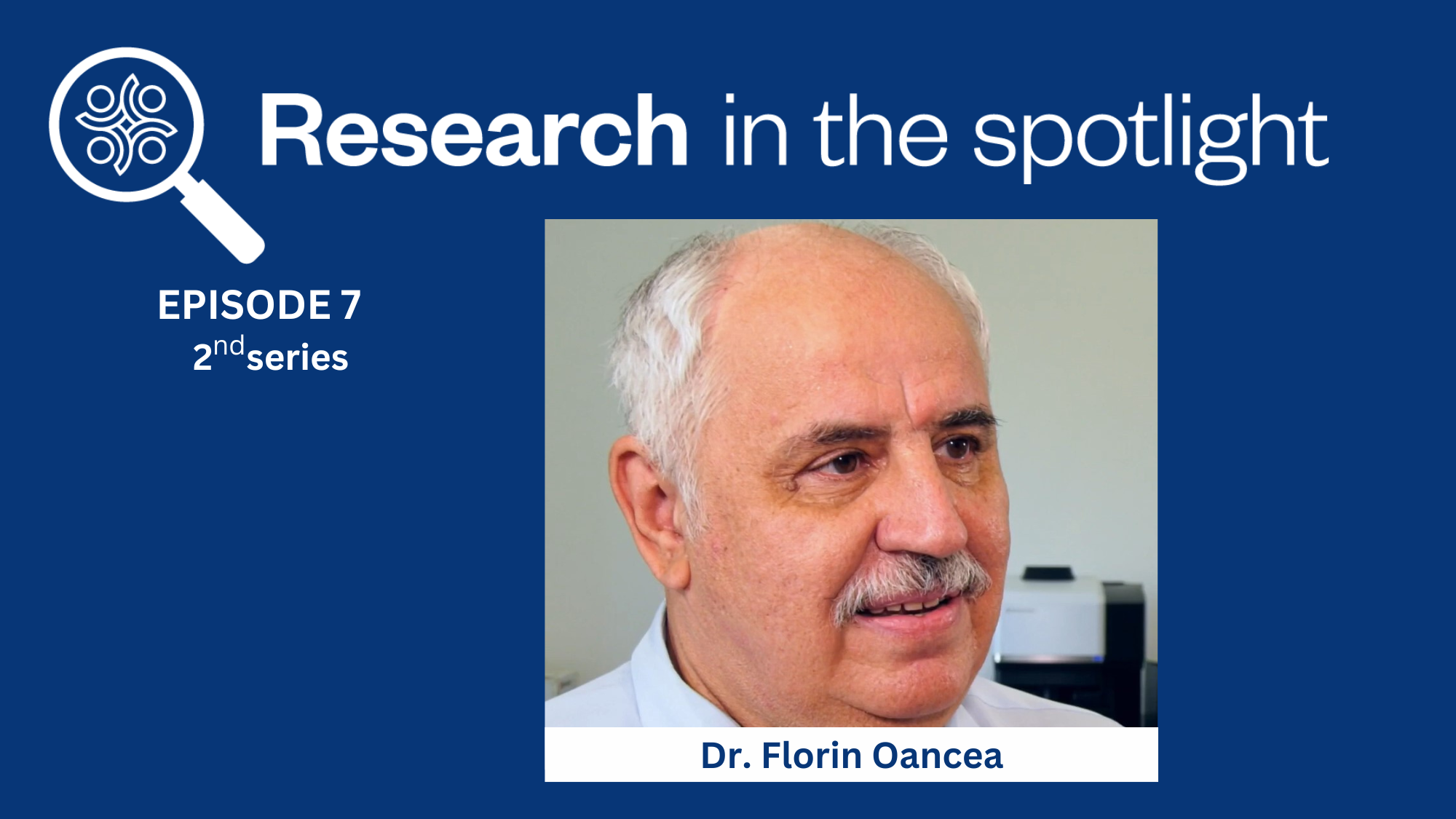
Several
areas in Romania, such as Dobrogea, Fagaraș and Brașov, have soils with
low selenium content. Because of its importance, a deficiency in
selenium would result in cardiovascular and malignant diseases. Dr.
Florin Oancea and the top researchers of the STIM 4+ Project aim to
develop an improved farming system for field-grown vegetables.
The
nano-selenium plant bio stimulant will enhance the vegetables’
tolerance to stress and determine an efficient and safe supplementation
of edible yield with selenium.
Watch the
seventh episode
of Research in the Spotlight to learn how plant bio stimulants can
compensate for the drawbacks of the high-residue cultivation system and
improve people’s health globally.
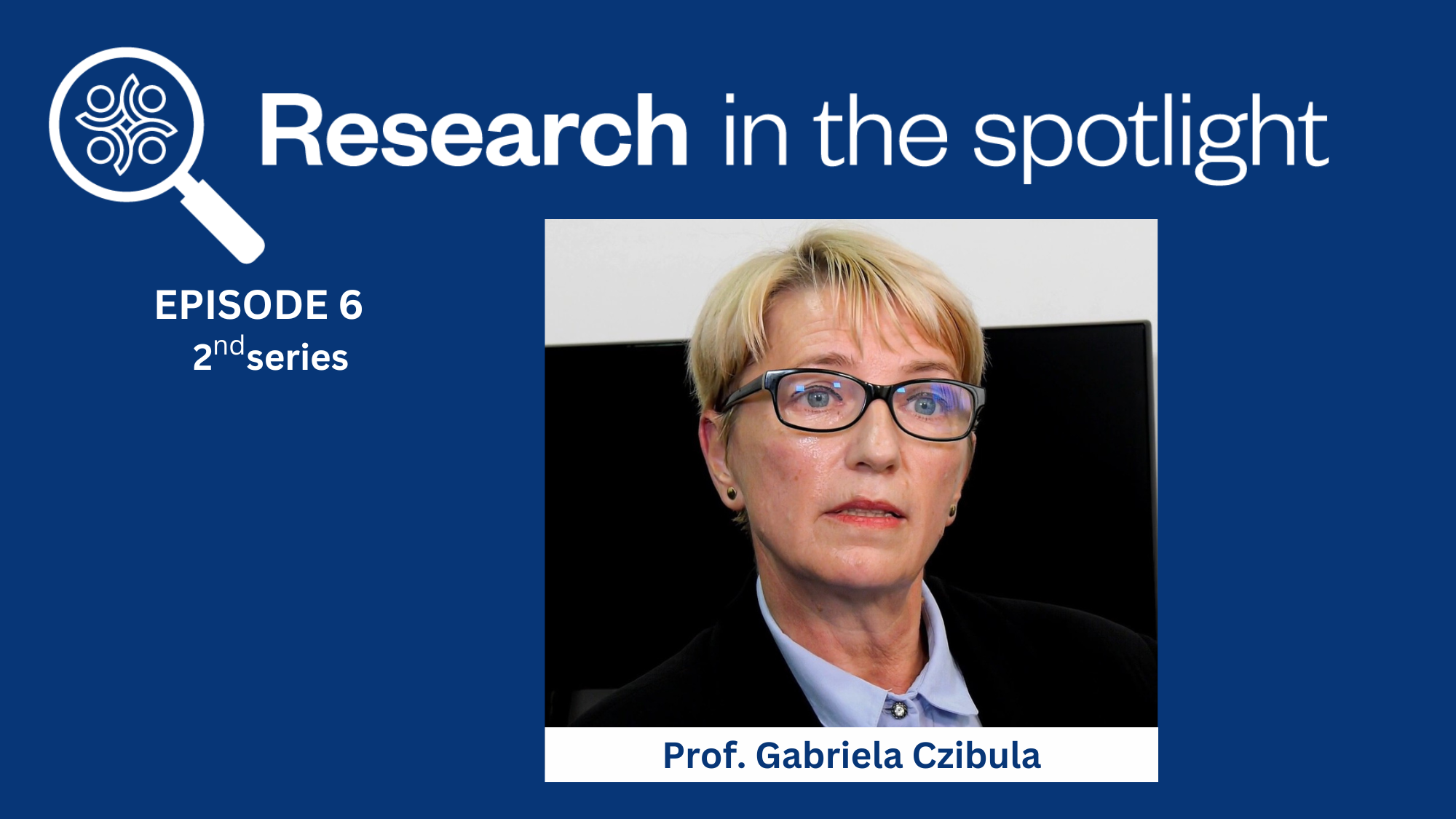
Prof.
Czibula and her research team aim to develop an efficient, seamless
nowcasting platform that employs deep learning techniques on multiple
data sources including radar, satellite, and weather station
observations. The main purpose of the WeaMyL project is to attain lower
decision times for issuing
nowcasting warnings, compared to current, exclusively human-based decision times.
Keep watching the
sixth episode
of the Research in the Spotlight to discover how a deep learning-driven
platform for an early forecast of severe meteorological phenomena will
improve people’s response to meteorological danger.
The LGBT community is one of the most vulnerable communities in the face of prejudices and negative attitudes.
The
Collaborative Research Project conducted by Professor Sava aims to
develop an internet-delivered prevention program based on acceptance and
commitment principles. The program will help younger generations to
cope with adverse events through self-acceptance and personal agency. At
a National level, Professor Sava’s solution promises to drive the
adoption of anti-discrimination policies and the reduction of stigma
surrounding the LGBT community.
Keep watching the
five episode
of Research in the Spotlight to discover how an experimental approach
plans to improve the lives and protection of the LGBT community.
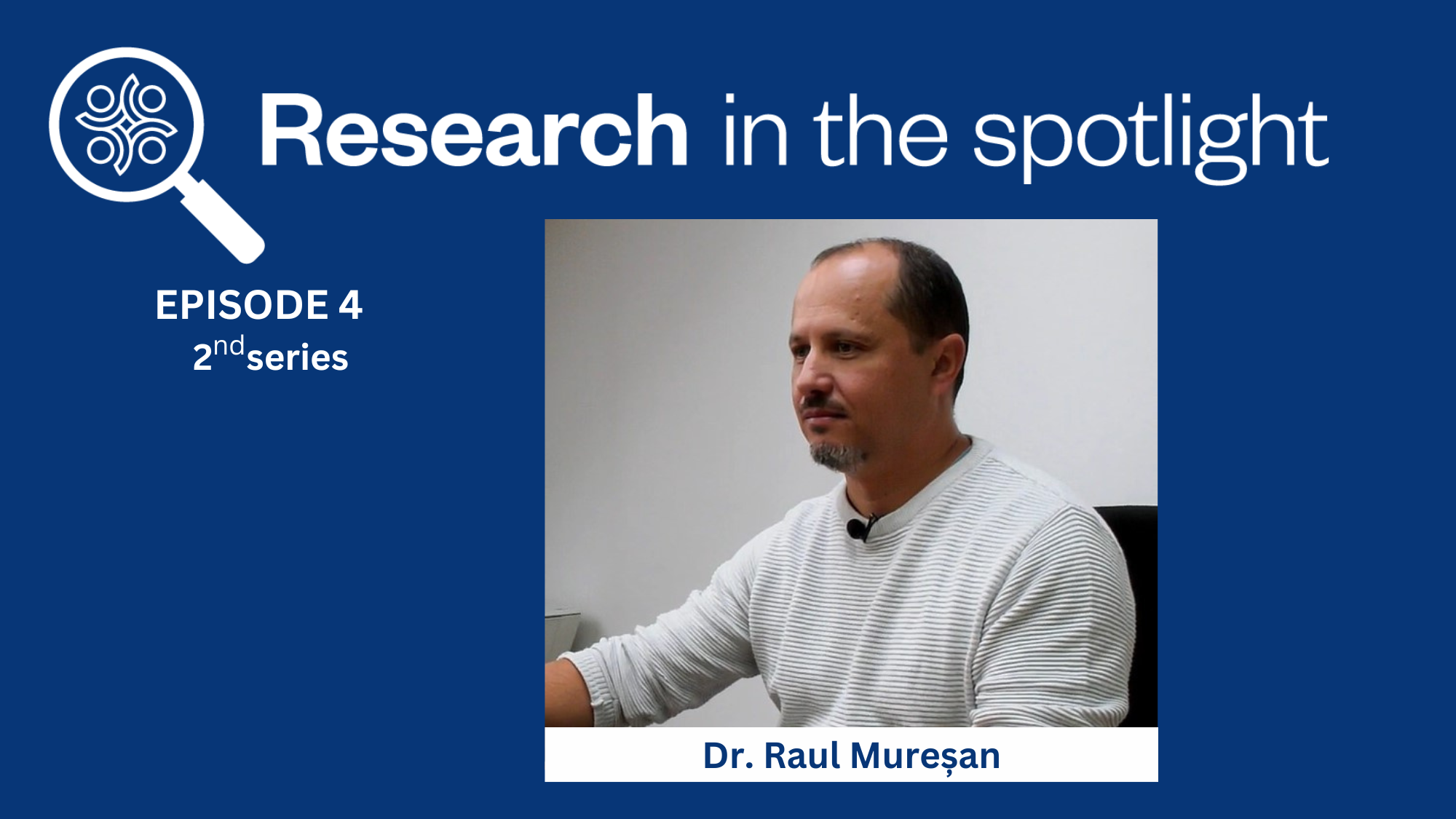
Alzheimer’s disease is one of the most debilitating neural disorders, affecting millions of elderly people worldwide.
Dr.
Mureșan aims to develop an optimized therapy that will employ advanced
closed-loop simulation tools. For the highest efficiency, this technique
will dynamically change the properties of visual and auditory stimuli
to optimally engage brain activity.
Watch the
fourth episode
to learn how the CIRCUITGENUS therapy promises to restore normal brain
function and alleviate the symptoms of Alzheimer's disease
The
change of the industrial relations and the uneven territorial
development contribute to the social marginalization of Roma communities
in the Baia Mare area.
Together with the FAFO Institute
in Norway, Prof. Vincze aims to provide a comprehensive understanding of
the living and working conditions of Roma people.
Keep watching
the third episode of
Research in the Spotlight to discover how this research will provide
the groundwork for creating a collaborative network of people for the
betterment of the most distressed ethnic minorities in Romania.
Emerging
contaminants in drinking water deeply affect the quality of life. Dr.
Socaci and her extensive team of Romanian and Norwegian researchers aim
to develop a rapid and green alternative for water remediation. The goal
is to develop immobilized nano-structured surfaces, which will exhibit a
high deficiency of visible-light driven remediation of aquatic
pollutants.
Keep watching the
second episodes of the Research In The Spotlight to learn how their experimental set-up can get us closer to better environmental solutions.
Microalgae produce more than 50% of the oxygen that we breathe
and are the foundation of the aquatic food web. However, climate change
is putting a serious toll on their abundance, diversity and
distribution.
The ADVANCE project coordinated by PhD. Druga
studies the impact of climate change on microalgae, and, ultimately, on the quality of human life.
Together with the Norway Institute for Water Research, his team plans
to understand the microorganisms’ response to changes in order to help
them adapt. Keep watching
this episode
to learn how a marine analysis can drive better environmental
decisions and offer the needed protection of the aquatic ecosystem.